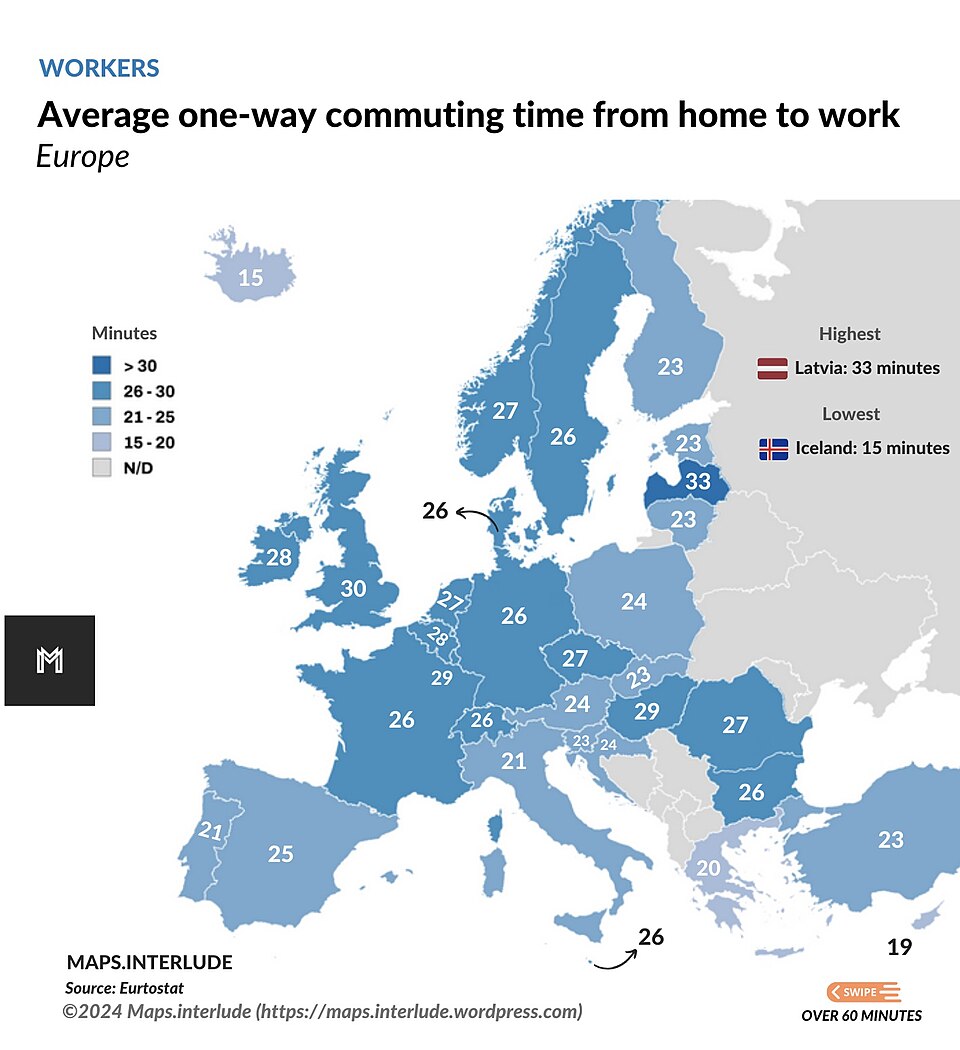
Here’s a depressing idea: In 1994, Italian physicist Cesare Marchetti suggested that people have always endured commutes of an hour a day, half an hour each way, on average. Improvements in urban planning and transportation haven’t shortened our travel time; they’ve just permitted us to live further afield. In 1934 Lewis Mumford had written:
Mr. Bertrand Russell has noted that each improvement in locomotion has increased the area over which people are compelled to move: so that a person who would have had to spend half an hour to walk to work a century ago must still spend half an hour to reach his destination, because the contrivance that would have enabled him to save time had he remained in his original situation now — by driving him to a more distant residential area — effectually cancels out the gain.
Marchetti attributed the idea to World Bank transportation analyst Yacov Zahavi. He found that the one-hour rule extends over the world and throughout the year; even the mean radius of villages in ancient Greece, he said, corresponds to this estimate, assuming a walking speed of 5 km/hr. As technology permitted greater speeds, cities grew correspondingly.
(Cesare Marchetti, “Anthropological Invariants in Travel Behavior,” Technological Forecasting and Social Change 47:1 [September 1994], 75-88.)
